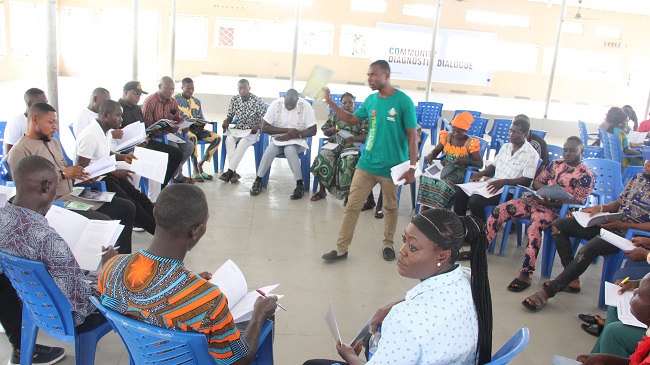The Health of Mother Earth Foundation (HOMEF) on Friday, December 6, 2024, trained locals in the Niger Delta on how to transit from fossil fuels to renewable energy sources.

The training, which was held in Benin, brought together community leaders, youths, and women from various Niger Delta communities, particularly from the oil producing communities.
Babawale Obayanju, a renowned environmentalist, delivered the first lecture, which focused on understanding the concept of just energy transition and the need to defund fossil fuels in favour of renewable energy.
Obayanju emphasised that a just energy transition was crucial for addressing climate change and ensuring energy justice for all.
According to him, the current energy system, which is heavily reliant on fossil fuels, was unsustainable and has devastating impacts on the environment and local communities.
Obayanju stressed that a transition to renewable energy sources was necessary to mitigate climate change and ensure a sustainable future.
The activist, who described just energy transition as shift in energy source to more sustainable forms in a morally right and fair manner, said the locals must restrict any transition, which did not take them into consideration.
“Just energy transition is not just about ending the era of fossil fuels, it is about doing it in a fair way that benefits the community.
“As local communities, you will need to build your knowledge. If any energy project is brought to your communities and you need to donate land, you must first assess what can be the environmental impact of such.
“Position yourself in a right place and ask good questions. Access necessary knowledge before taking a decision on such project,” he said.
He enlightened the participants to always consider their means of livelihood, their women and children and to be more circumspect.
On his part, Cadmus Atake-Enade, another environmental expert, centred his lecture on the use of cultural tools for resistance.
Atake-Enade underscored the importance of cultural heritage in the struggle for environmental justice.
According to him, cultural tools, such as traditional music, dance, and art, can be effective instruments for resistance against environmental degradation and injustice.
Atake-Enade encouraged the participants to harness their cultural heritage to mobilise their communities against environmental threats, without resorting to violence.
The training encouraged the participants to demand inclusive and participatory approaches to energy transition and the need to ensure their rights and interests are respected.
By Usman Aliyu
